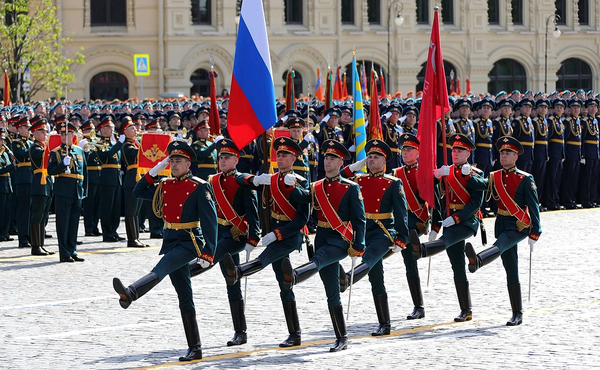Russia has embarked upon a series of threatening activities ostensibly directed at Ukraine, but that in fact could culminate in enormous and disastrous military and political damage to NATO. Those same threatening activities might also be used by Russia as a lever to get the West to deliver what President Vladimir Putin wants without military action. We don’t know yet which is the Russian endgame, and it is conceivable that they don’t yet either.
Which makes it foolish in the extreme to have an “if/then” policy. “If/then” is transactional — If I’m nice to you, you should be nice to me; if you misbehave, I will impose consequences on you. If/then relies on two things — first, that your adversary believes you and further, that he fears the consequences. This works from parent to child. But with a competent adversary, there is a third requirement — that the consequences he can inflict on you are within your tolerance.
How is it working?
President Joe Biden removed sanctions from the Nord Stream 2 pipeline project, allowing Russia to finish the supply line for more Russian gas to Europe and cut Ukraine out as the middleman. In return, Russia has added troops to the border of Ukraine; there appear to be upwards of 70,000 now. In December, the G7 ministers adopted a more threatening tone. “Russia should be in no doubt that further military aggression against Ukraine would have massive consequences and severe cost in response.” In January, Secretary of State Antony Blinken sounded firm. “We’ve offered (Putin) two paths forward. One is through diplomacy and dialogue; the other is through deterrence and massive consequences for Russia if it renews its aggression against Ukraine. And we’re about to test the proposition of which path President Putin wants to take.”
He was not explicit about the nature of the consequences — the Ukrainians clearly are hoping for a NATO military response, but for many reasons, including that NATO has not even discussed such an option, it is unlikely. The new German foreign minister tipped NATO’s hand that the response will be economic when she said, “Further military escalation wouldn’t bring Ukraine greater security.”
Russia released its list of demands on December 17. Putin calls for a binding security guarantee, including that NATO would not expand to the east, and warned that he will find his own “military technical” solution if NATO does not stop its “aggression.” The U.S. has explicitly rejected strictures on NATO and Moscow has already begun to reduce gas shipments to Europe and there is a lot of winter left to go. There are banking and other sanctions the U.S. and its allies can apply that will hurt Moscow — but maybe not as much as cold and angry citizens will hurt Europe.
And there is another sort of if/then. What happens if Russian troops just sit there, making it impossible for Ukrainians to have any sort of real life while watching and waiting, as Europe gets colder?
The Russians are in the middle of a U.S.-orchestrated if/then at the Iran nuclear talks in Vienna, as well, where Ambassador Mikhail Ulyanov has taken over as spokesman while the U.S. sits in another room. Using the Russian model, Iran is imposing its own conditions for talks and having Ulyanov as its spokesman. “Our Iranian colleagues have presented their demands rather transparently and put forward their proposals in a written form. From Russia’s point of view, this is a step forward because neither a written agreement nor an official consensus was reached at the end of the previous six rounds of negotiations.”
While the talks continue, Iran continues to enrich uranium and arm Hezb’allah in Lebanon with explicit threats to destroy Israel. But Israel is not NATO and has made its position clear. In Washington late last year, Israeli Foreign Minister Yair Lapid warned that Israel is prepared to use military force to stop Iran from gaining nuclear weapons capability. “Iran has publicly stated it wants to wipe us out. We have no intention of letting this happen.” That is a position Iran cannot ignore, first because Israel has credibility, and second because it has capability.
Whether NATO, and specifically the United States, can stake out a position that has such credibility backed by capability — without threatening action it is unprepared to take — is much less clear. Thinking to make Russia pay after the fact of military activity won’t, itself, stop the activity — if there is activity. [See 1984’s Bear in the Woods for the metaphor.]
If/then is woefully inadequate for Ukraine — and for NATO.






